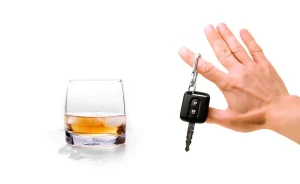
Alcohol withdrawal symptoms range from mild but annoying to severe and life-threatening. Over time, however, the body builds a tolerance to alcohol, and a person may have to drink more and more to get the same feeling. Meanwhile, the brain is producing more and more neurotransmitters, making a person further imbalanced.

Top 7 Ways to Stop Drinking: How to Quit Alcohol

Outpatient rehab can be cheaper, but is still tips to quit drinking often in the range of several thousand dollars per month.2 For many people, even if they’d like to attend rehab, the expense just isn’t manageable. Another benefit of giving up alcohol is that your mind may be clearer. This is because alcohol can cause changes in brain chemistry, which can lead to cognitive problems.
Giving Up Activities
This underscores the importance of developing strong social strategies in early sobriety. When these health issues become severe or chronic, it’s a clear sign that professional help is needed not only for alcohol addiction but also for overall health management. These symptoms indicate that the body has developed a significant physical dependence on alcohol. Attempting to quit “cold turkey” in this state can be extremely risky. Severe withdrawal symptoms are a critical sign that professional help is necessary. These symptoms can be dangerous and even life-threatening if not properly managed.

Support Groups and Online Communities
- He should know, having quite literally written the book on it (Drink? The new science of alcohol and your health, £15.40).
- If you want to stop drinking without rehab, one of the best tools at your disposal may be your smartphone.
- In order to quit drinking, you may need proper medical support to detox safely.
- Secondly, and perhaps more obviously, not drinking alcohol can help with avoiding its harmful effects.
You may not need to completely reinvent your life to quit drinking, but making a few changes in your surroundings to help avoid alcohol triggers can make a big difference. I’ve chatted casually with friends about the reason behind my decision, and they’ve been nothing but lovely and supportive. But in new environments where drinking is the norm, I try to keep the fact I’m not drinking under wraps by ordering a diet coke or alcohol-free beer on the sly. From my experience, people don’t ask questions when you’re holding a drink, and I don’t want swerving alcohol to be my defining character trait when meeting new people.

- If you’ve been drinking heavily for a while, odds are you have some close friends and family who drink heavily too.
- Going from a life of drinking to a life in recovery from alcoholism can be challenging.
- Building a strong support system is vital for maintaining sobriety.
- I’m not just referring to how I behaved while under the influence, but my general demeanor, reputation, and options for life were all begging for a massive change.
- Family and friends can provide encouragement and support when you stop drinking.
The site also delivers a list of sobering statistics about the reality of alcoholism. These statistics remind you that you’re often one bad decision away from completely ruining your life. NIAAA’s website is full of practical research and science-based methods to help you stop drinking. The NIAAA tells you the mathematical difference between drinking in moderation, binge drinking, and heavy alcohol use.
- I did it, but I wish someone had warned me about the emotional challenges I’d face when I quit drinking.
- Avoiding the pub is an obvious one for many people, but remember to think about whether alcohol is still readily available at home too.
- There are lots of reasons why you might want to stop drinking alcohol.
- If you think you might have alcohol use disorder (AUD) and decide to stop drinking completely, don’t go it alone.
- Many people try to stop drinking on their own multiple times before seeking help.
- Among other things, you might find you have more energy, that you’re sleeping better, or that you’ve lost a fair amount of weight.
Many people find that combining professional treatment with peer support provides a comprehensive approach to recovery. If your goal is to quit drinking, do you want to gradually reduce the amount of alcohol you consume over https://ecosoberhouse.com/ time or give up drinking all at once? There’s no right answer, but you should go into quitting with a roadmap for your journey ahead. Affirming intentions, knowing the reasons for quitting alcohol, and setting up the environment for success are important strategies. For example, keeping the home alcohol-free may prevent people from drinking.

 العربية
العربية


